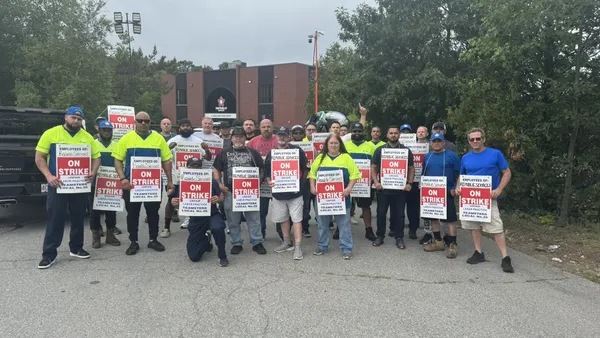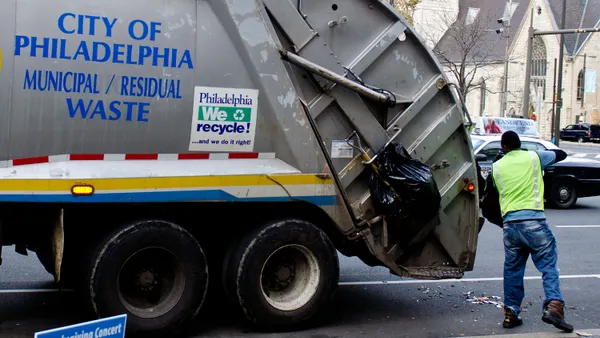UPDATE: Feb. 13, 2018: The Bloomington City Council voted 5-3 against privatizing waste collection, as reported by The Pantagraph and WGLT.
The council will now consider raising fees and reducing the frequency of some services to address a budget gap.
UPDATE Feb. 12, 2018: Both Bloomington Mayor Tari Renner and the union representing city collection workers have come out against talk of privatizing service in the Illinois city, as reported by The Pantagraph.
With waste collection costs projected to create a $1.1 million gap in the upcoming budget, both Renner and the American Federation of State, County and Municipal Employees Local 699 think that raising fees is the best option.
The city's public works director also supports the concept. Currently, residents are asked to pay a monthly fee based on size that is in fact lower than the cost of service. Another complementary option, reinforced by Renner, would be to reduce bulk waste service.
The Bloomington City Council is scheduled to address a range of options for solid waste collection on Feb. 12.
Dive Brief:
- Bloomington, IL, is currently running an estimated $2.9 million budget deficit; some think waste privatization could help solve it, while others are conflicted, as reported by The Pantagraph. The city subsidizes its solid waste program with $1.1 million per year, and the rest is covered by residential collection fees. The Bloomington City Council could vote on privatization as soon as Feb. 12.
- The neighboring town of Normal, which has its own $4.25 million budget deficit and is subsidizing collection with $1.46 million per year, had also been exploring the privatization concept. Though local officials decided against it after a Jan. 18 City Council budget workshop. "It would certainly help our budget to go private, but it would put the burden right on the taxpayer," Normal Mayor Chris Koos told The Pantagraph.
- In Greenfield, MA, officials of the smaller town are also discussing privatization to address upcoming costs associated with an aging fleet and transfer station. Greenfield is currently spending $350,000-400,000 per year on collection services, but the Department of Public Works estimates that should be closer to $800,000 to cover capital needs. Residents have expressed opposition to privatizing and more discussions are expected in the coming months, as reported by the Greenfield Recorder.
Dive Insight:
The privatization trend has become common, especially among smaller municipalities such as Greenfield, Bloomington and Normal. According to recent analysis from Waste Business Journal, participation from municipal governments in waste collection has reduced from 35% to 20% over the past 20 years. Other publications, such as American Recycler, have also noted the trend — especially in states with diversion mandates such as California.
In theory, privatizing services can be beneficial because outside companies have budgets for the necessary capital upgrades to fleets and infrastructure. This argument may be even more appealing in cases where local governments want to expand their programs with more robust recycling or organics diversion. This has led to a rise in the number of franchise agreements in certain parts of the country — which the industry's largest companies support — where local governments can ask for more services in return for some degree of exclusivity and longevity.
Depending on regional factors, scale and the level of service expected, privatization may not always be less expensive. By definition, for-profit companies need to charge a certain amount to justify the work and that has become even more true with the current state of recycling markets. That cost will inevitably get passed on to residents.
Yet for some small municipalities facing budget deficits, such as the three in question, keeping operations in-house may also mean raising collection fees or cutting some features, like collection of bulk items and yard waste. This may be a sign that in either scenario the costs of modern collection and diversion services will continue to rise without some type of larger-scale change to the system.










